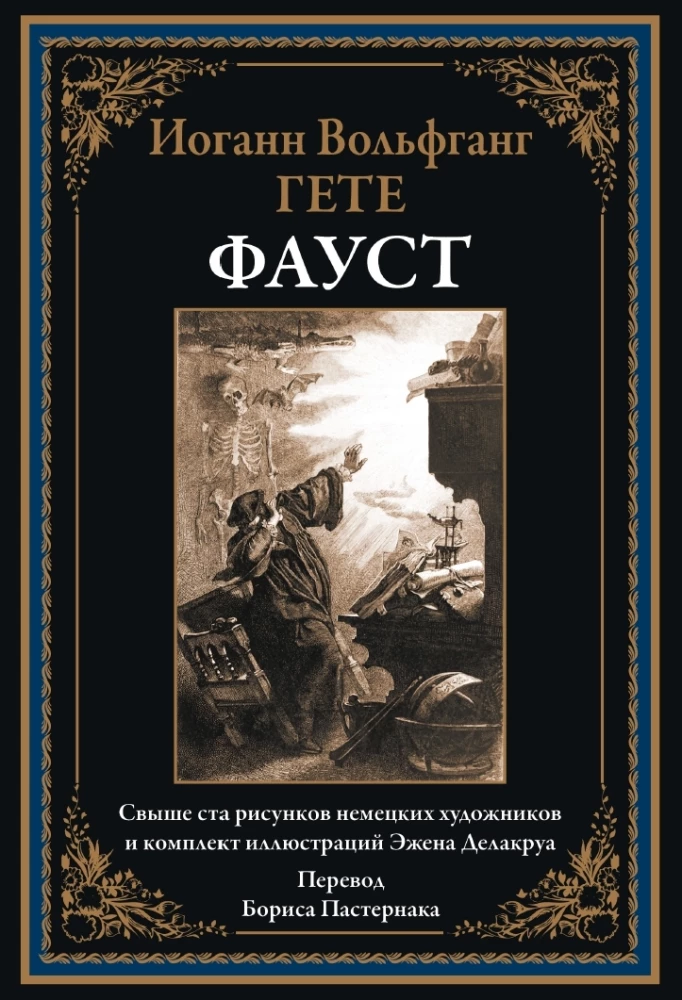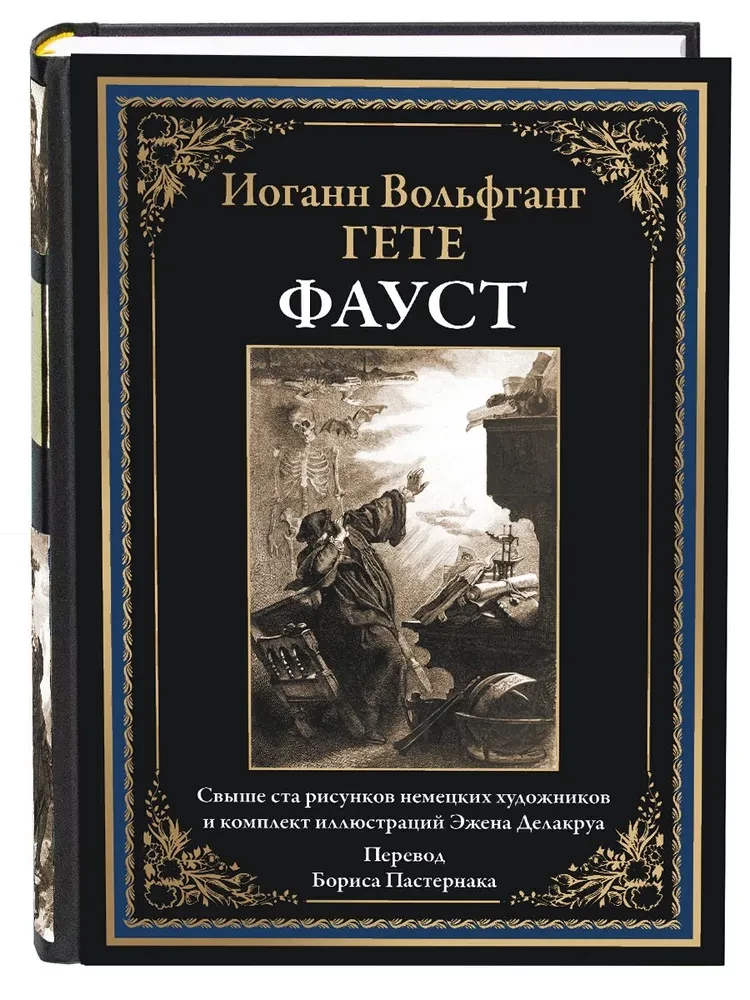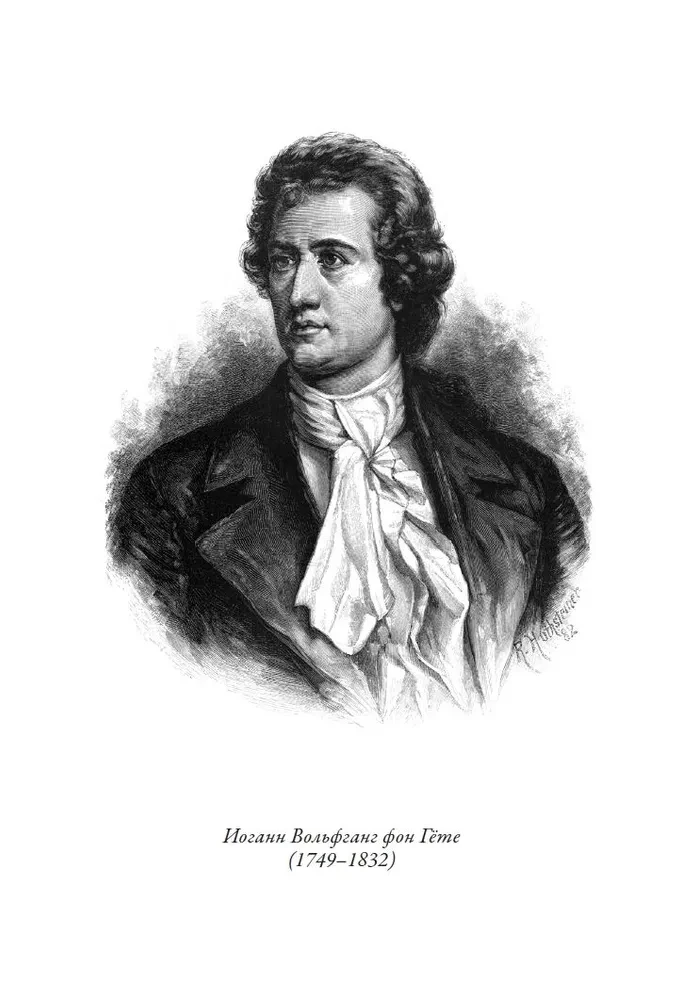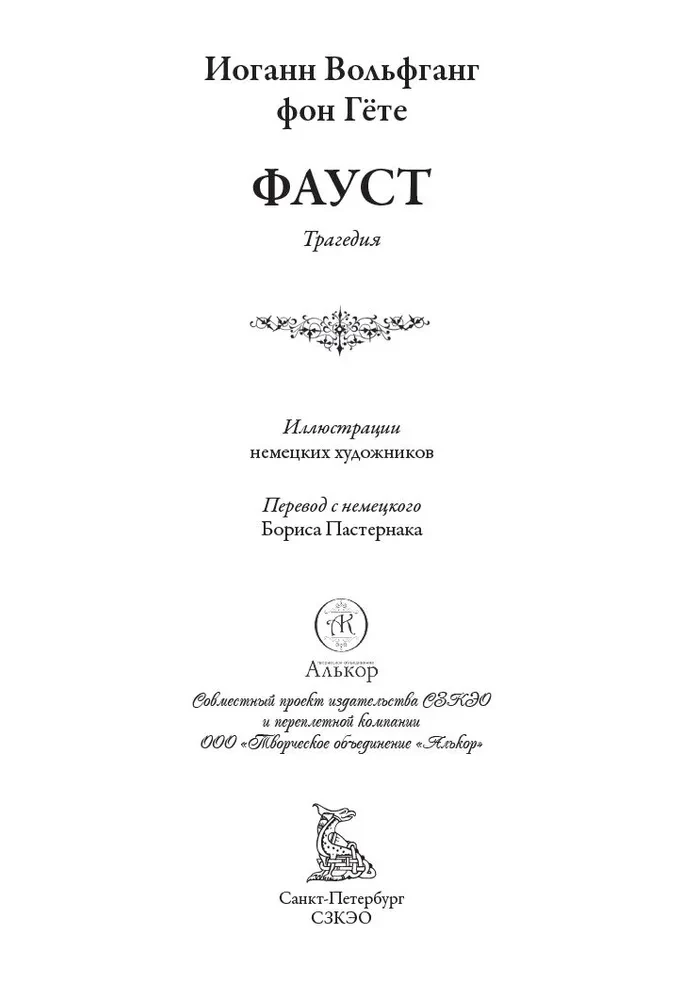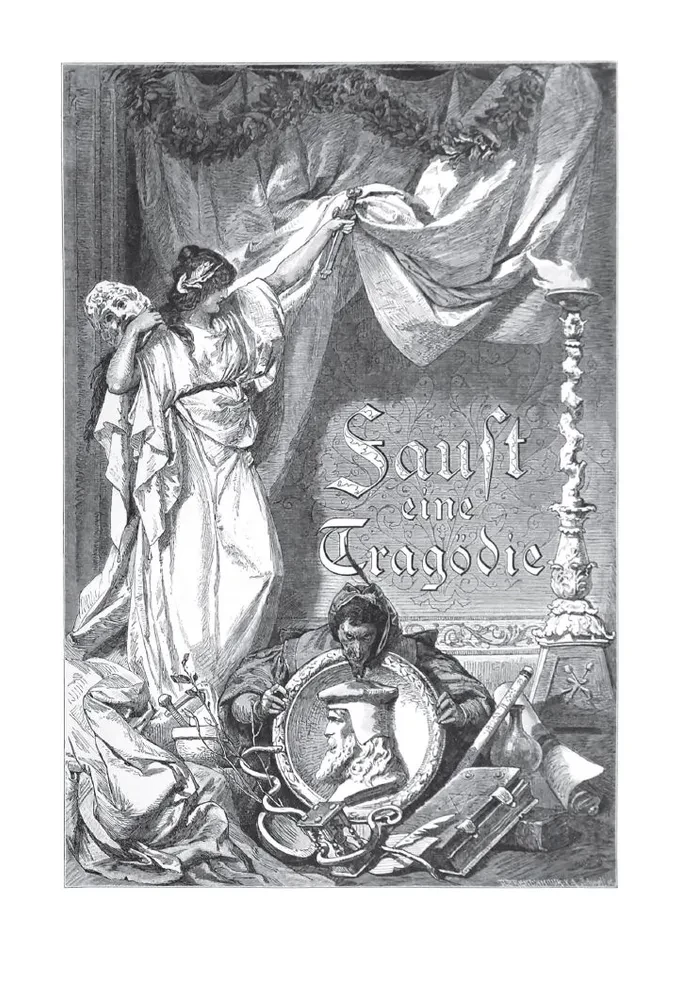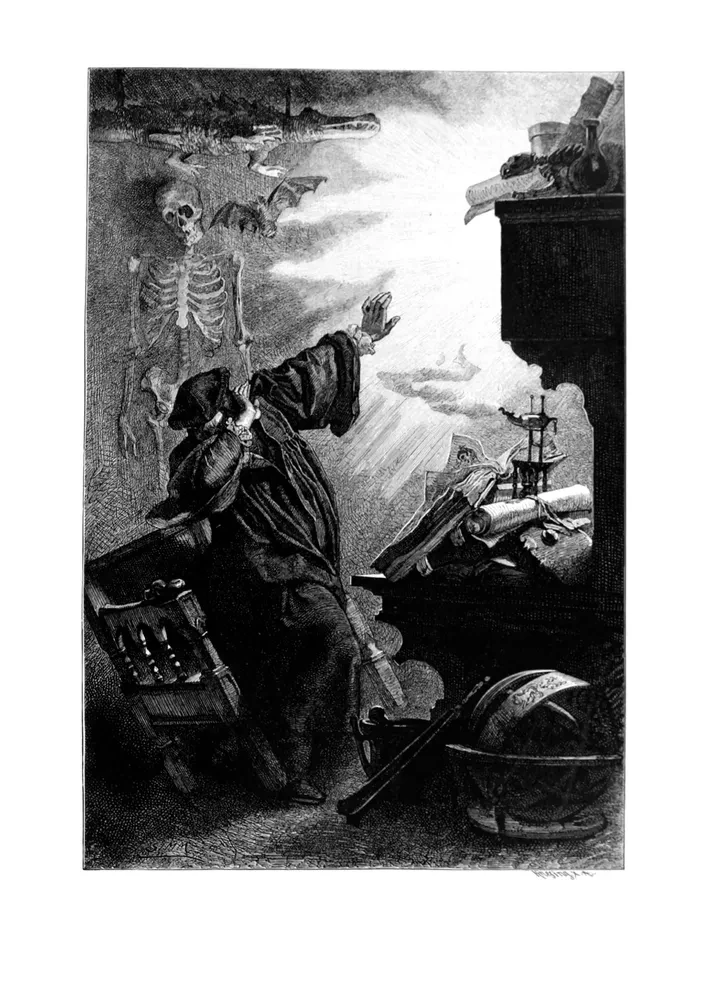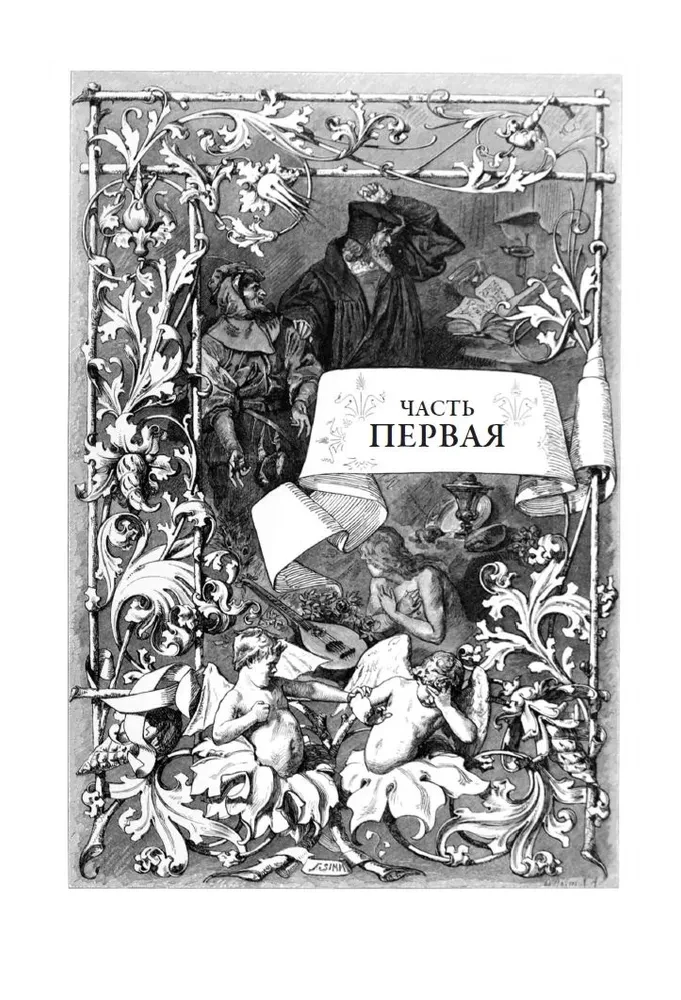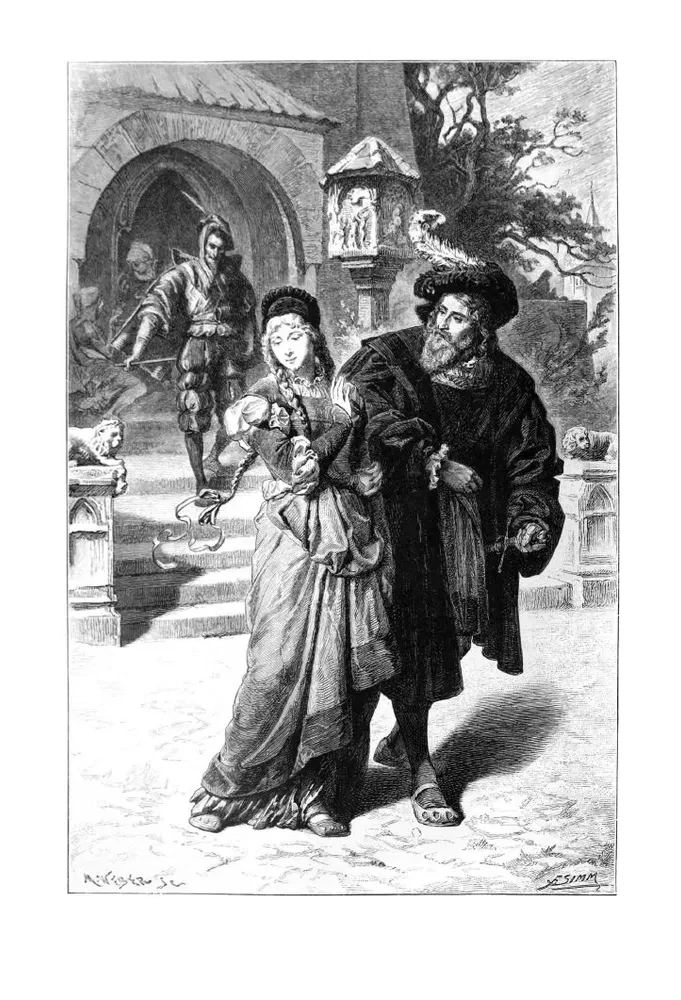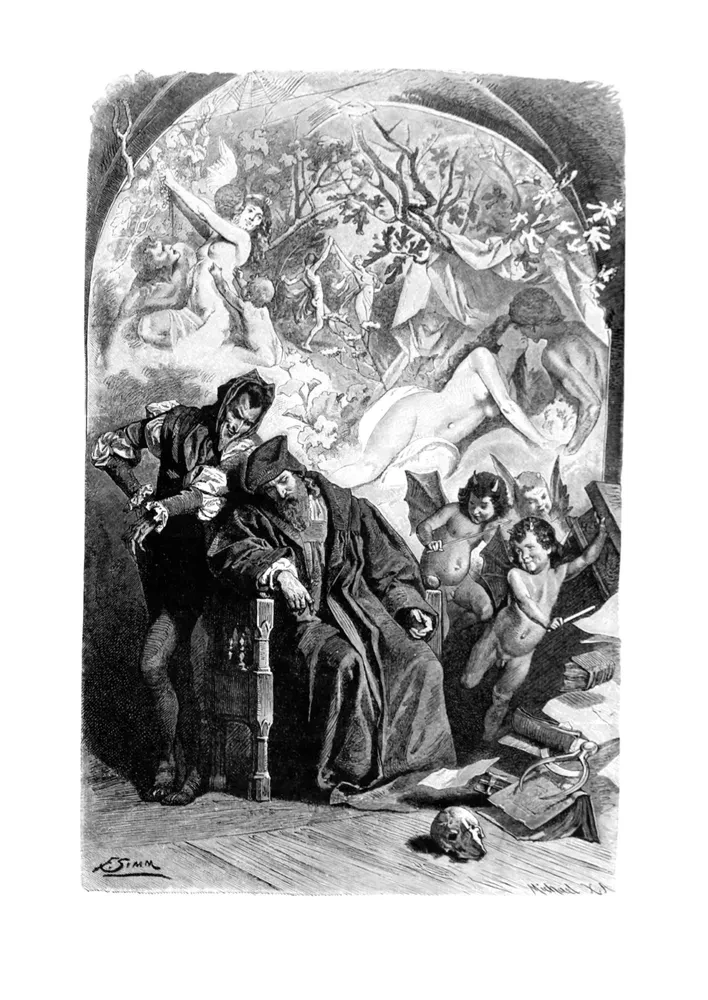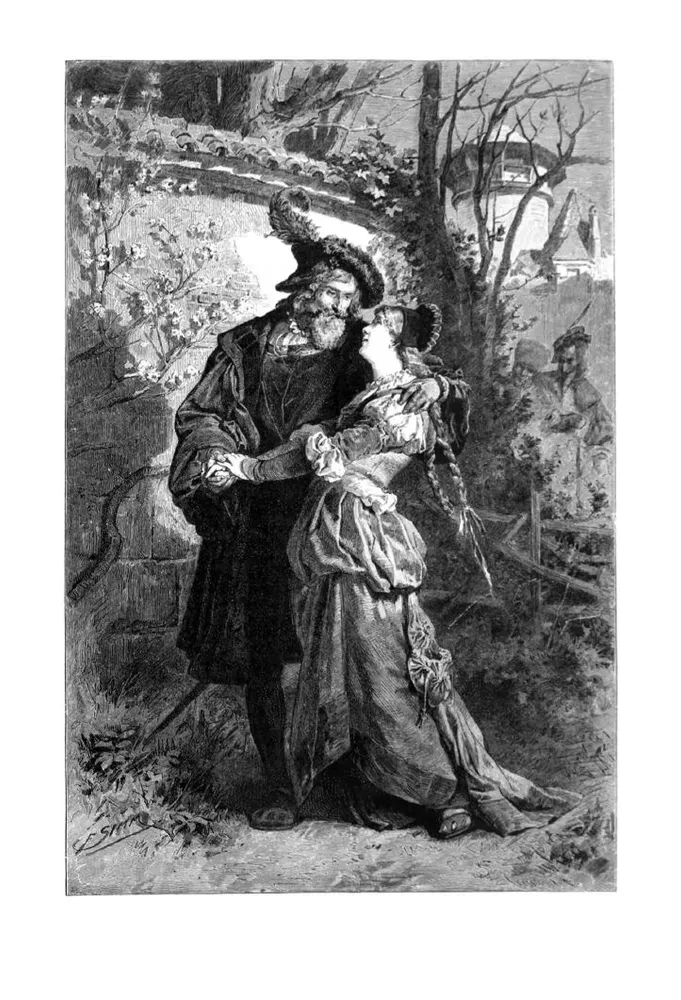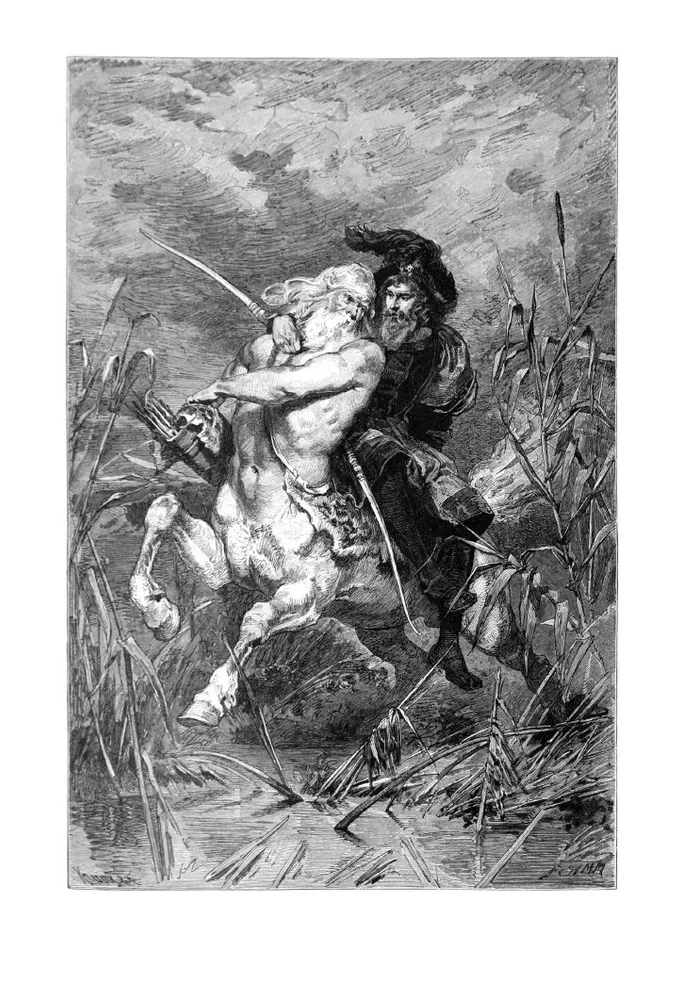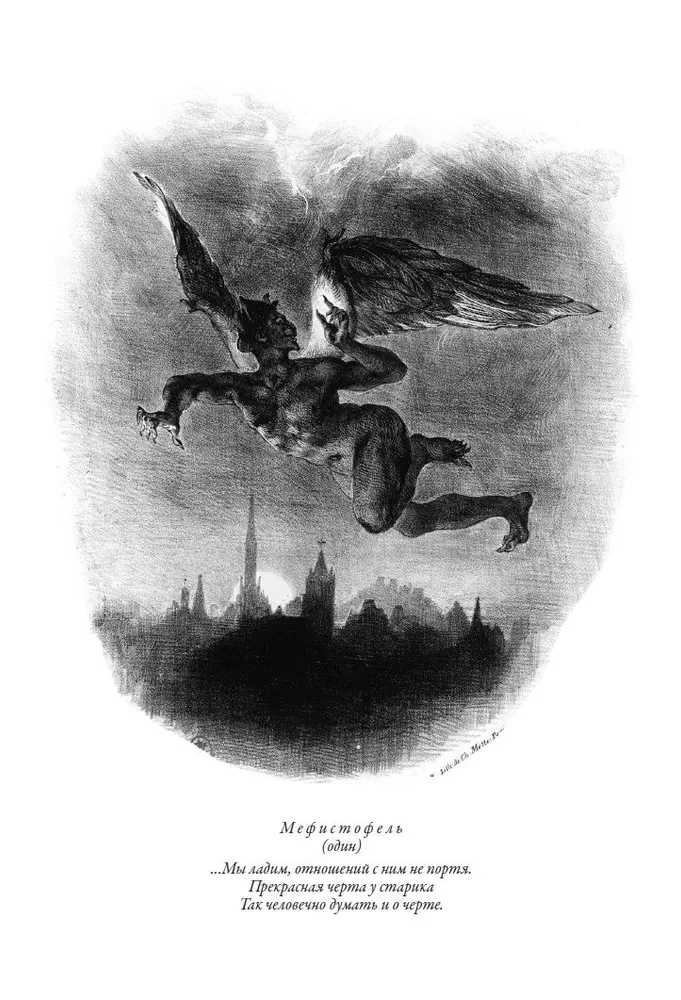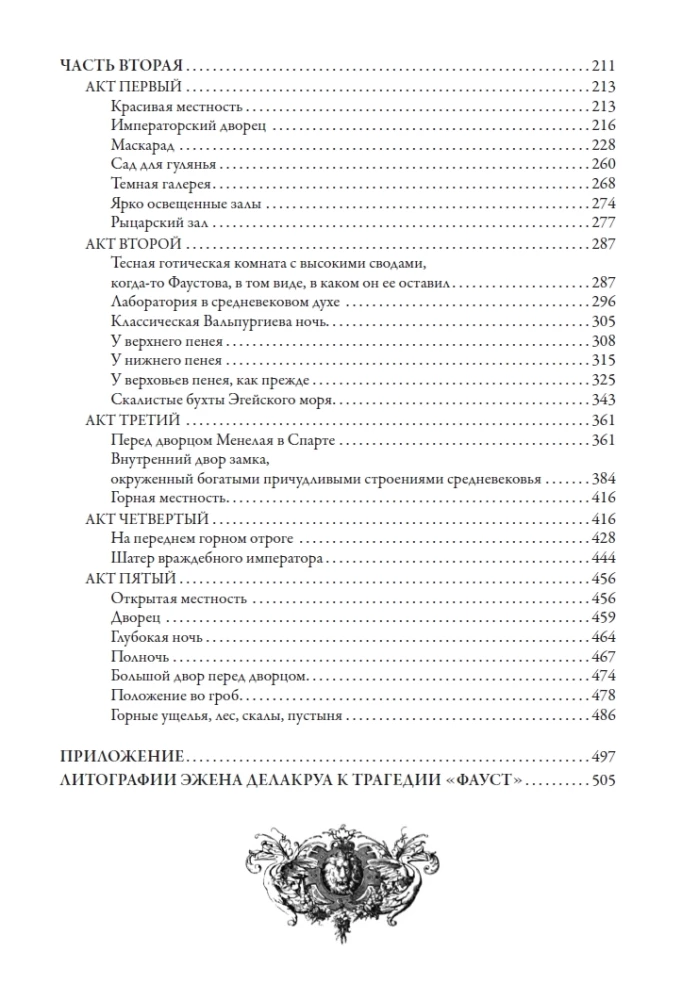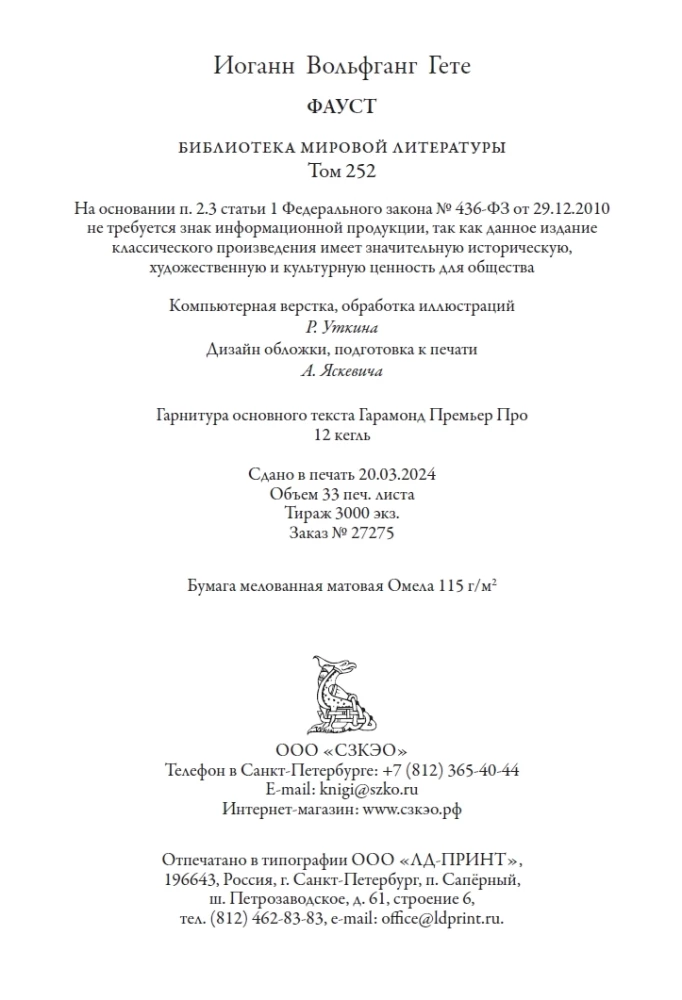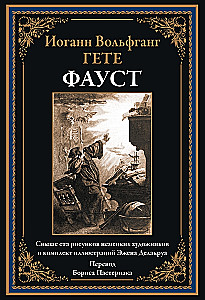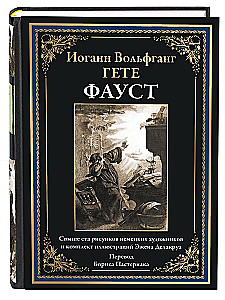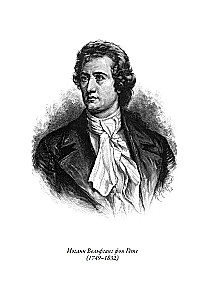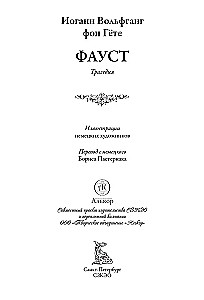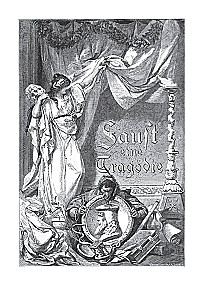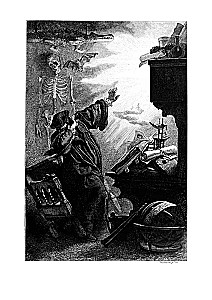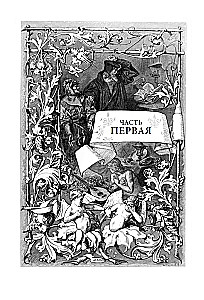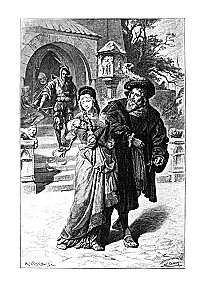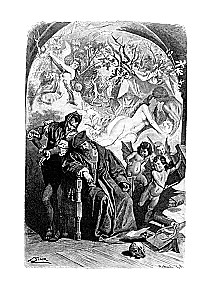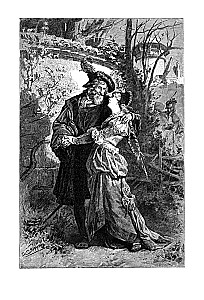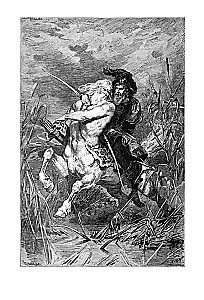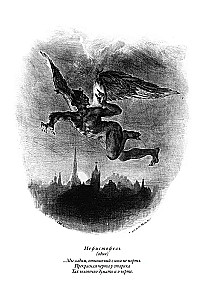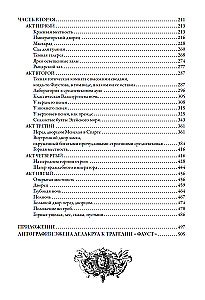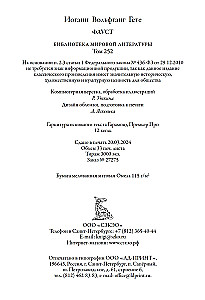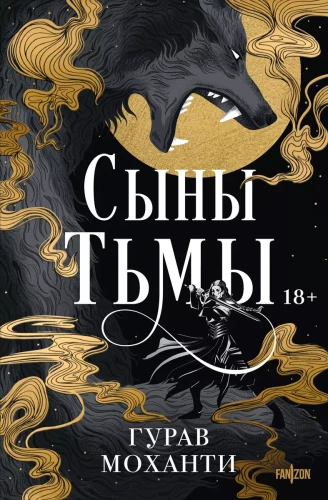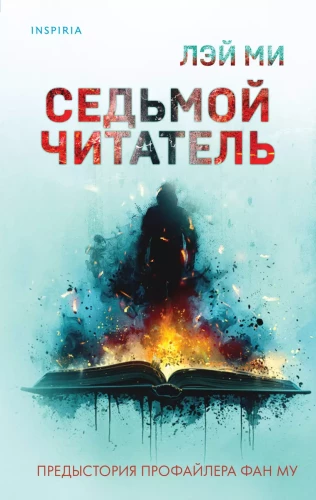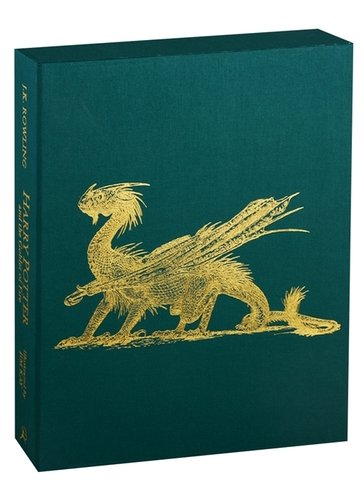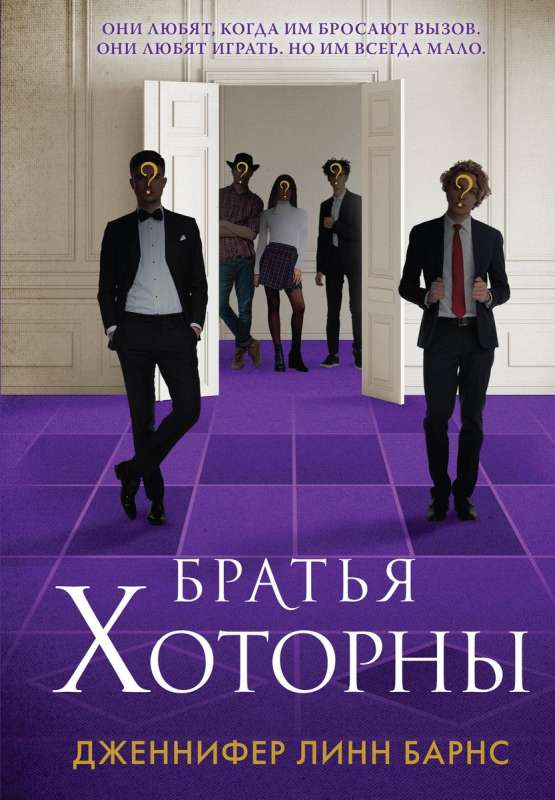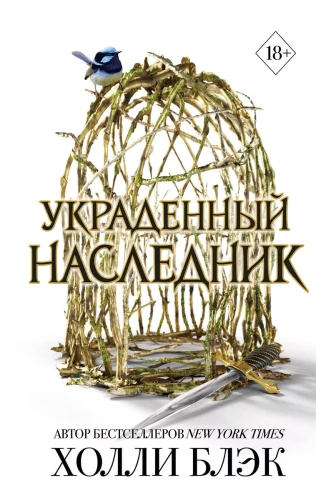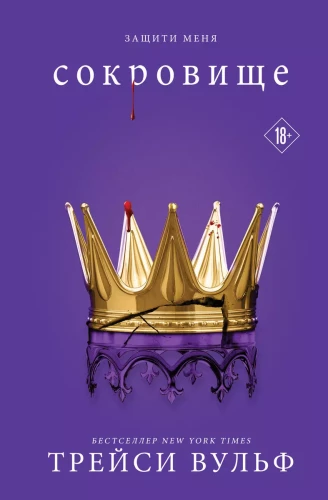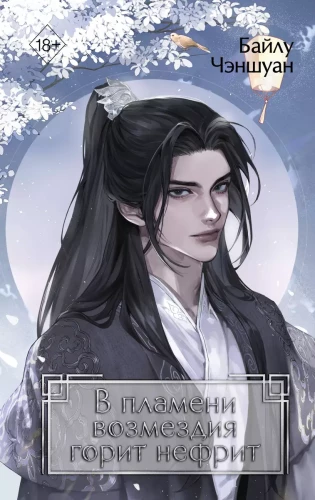Faust
You can view the entire book in electronic form via the link on the SZKEO website. The gift illustrated edition is printed on domestic matte coated paper with a bookmark of the same color as the captal. The famous philosophical...
drama “Faust,” the main work of one of the greatest German poets Johann Wolfgang von Goethe (1749–1832), is published in this edition in a translation by Boris Leonidovich Pasternak. At the end of the publication there are several versions of his translations of songs and poems. The book is decorated with illustrations by the best German artists for the collected works of Goethe, published in 1882, as well as seventeen lithographs by Eugene Delacroix (1798–1863), which he completed in 1826 for the translation of Faust by Albert Stapfer, published by the publisher Charles Motta.
The tragedy "Faust" is rightly considered the most significant work of Johann Wolfgang von Goethe (1749-1832). The great German poet worked on this philosophical drama throughout his entire creative life. Its second part was published in 1832, after the poet’s death. Goethe's Faust has become one of the most original works of world literature. In terms of stylistic diversity, scale and depth of the universal human problems raised, this poem can be compared with Dante’s “Divine Comedy”. At the same time, Goethe's Faust is one of the peaks of German poetry. Therefore, it is not surprising that just a few years after the publication of the full text of Faust, the tragedy began to be translated into Russian.
The poet Eduard Ivanovich Guber was the first to take on this difficult task. He worked on the translation for five years, but, without receiving permission to publish it, he destroyed the manuscript. Having learned about this, A.S. Pushkin actually forced Guber to restore the translation. He helped him with advice, corrected many passages and did not receive him if the poet did not bring a new fragment of his translation. However, V. Belinsky noted that Huber distorted Faust, did not understand, and did not convey its spirit. “His creation of Goethe is not powerful and strong, imbued with life, which emanates even in the very sounds of poetry, but weakened and frail,” the critic wrote in one of his letters.
Later, “Faust” was translated by Afanasy Afanasyevich Fet, who tried to preserve all the poetic dimensions of the original. There is also a translation by Valery Yakovlevich Bryusov, in which the influence of symbolism is clearly felt. Other poets also worked on Faust. Critics believe that the translation made by Nikolai Aleksandrovich Kholodkovsky most closely matches Goethe’s original work.
However, the translation of “Faust” by Boris Leonidovich Pasternak, published in this edition, is no less interesting. According to many critics, no other Russian translation of Faust can compare with Pasternak's in poetic sound. Its text not only reproduces the deep meaning of all the dialogues of the original, but also reveals to the reader all the richness of poetic expressiveness inherent in the original. B. A. Pasternak's translation bears the imprint of his personal poetic style, but this is an advantage, not a disadvantage, since the intonation of a talented poet elevates his translation above the colorless works of translators of the 19th century. Some fragments of the text in Kholodkovskoto are more accurate, but Pasternak was better able to convey both the richness and diversity of the stylistics of “Faust” and the deep unity of Goethe’s great work.
Author: Иоганн Гёте Вольфганг
Printhouse: SZKEO
Series: БМЛ
Year of publication: 2024
ISBN: 9785960310383
Number of pages: 528
Size: 180х250х35 mm
Cover type: твердая
Weight: 1300 g
Delivery methods
Choose the appropriate delivery method
Pick up yourself from the shop
0.00 £
Courier delivery
